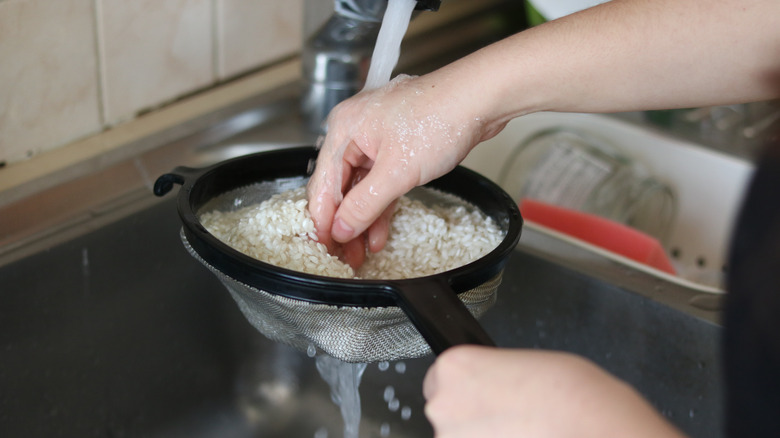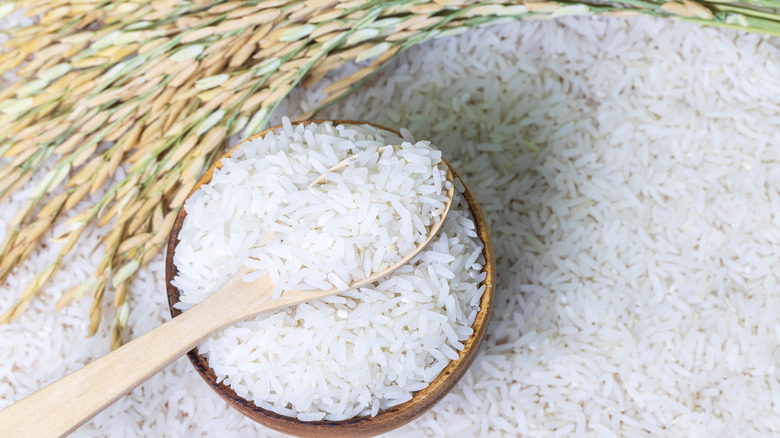Is It Safe To Eat Unwashed Rice?
Rice is one of the most popular grains in the entire world and many people eat it daily. Although most commonly eaten in Asia, rice is a staple in many homes around the world. When you buy a bag of rice, you may notice that many include instructions to wash your rice before you cook it. You might think that this is an unnecessary step, but there are some good reasons to rinse your rice before you put it in the rice cooker.
The main reason you should wash your rice is the same reason you should wash fruits and vegetables before eating them (via Martha Stewart). Rice usually has to travel a long time to get to your local grocery store and will likely pick up dust, debris, bugs, chemicals, and dirt along the way. Rinsing ensures that your rice is clean and safe to eat. Rinsing your rice also improves its texture, according to culinary experts and fans of the food. Water will wash away excess starch on the rice kernels that can make your rice gummy and sticky after cooking. Rinsing your rice will give it a light, fluffy texture instead.
Is rice healthy?
Fans of a low-carb diet may say that this grain isn't good for you, but that isn't true. According to Medical News Today, one cup of white rice has about 260 calories, five grams of protein, and less than one gram of fat. White rice often has the bran and germ removed during processing, which means it has fewer nutrients than other kinds of rice that have not been processed. Brown rice, for example, has not had its bran and germ removed, which gives it a few more benefits including more fiber, antioxidants, vitamins, and minerals than white rice.
Although rice is somewhat high in calories because it is a carb, our bodies need carbs to survive. According to Mayo Clinic, carbohydrates are the main source of fuel for our bodies. They should make up 45 to 65% of your total daily calories. Carbohydrates are naturally found in grains like rice, as well as fruit, vegetables, milk, seeds, and legumes.


